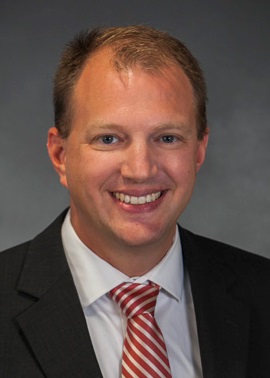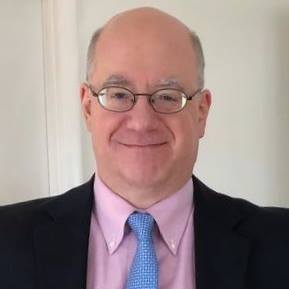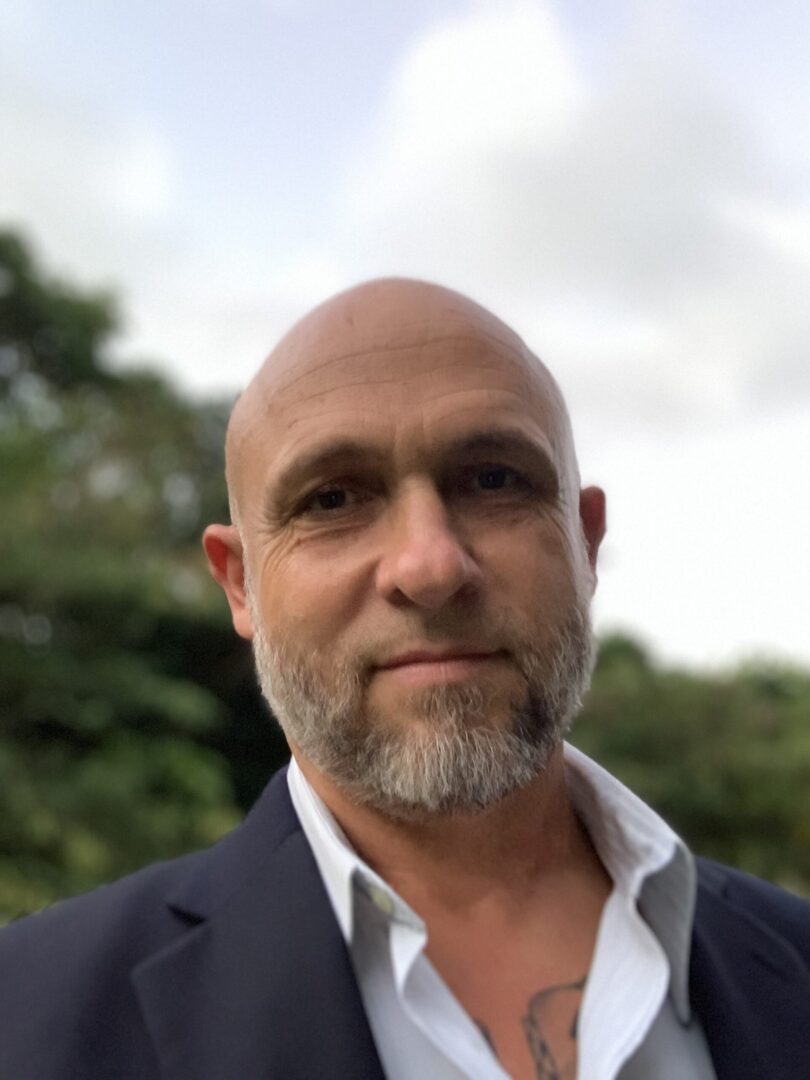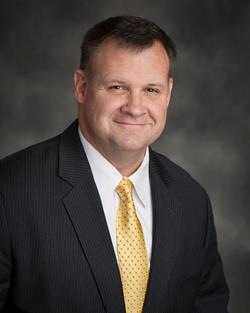
Peter Ahern, a founding member of CENSA, has served on the board of directors and as chairman of the membership committee. He is a colonel in the U.S. Marine Corps currently assigned to United States Africa Command where he serves as the Future Operations Chief and is a founding member of the command.
Prior to the establishment of Africa Command (as a Geographic Combatant Command on October 1, 2008), Mr. Ahern was the leader of the team responsible for the planning and transition of over 140 missions and activities in Africa previously held by U.S., European, Central and Pacific Commands. His next assignment is command of the U.S. Marine Corps Chemical Biological Incident Response Force in Indian Head, Maryland. He is a distinguished graduate of the National War College.

As Special Assistant to the Counselor to the Secretary of State, David Aidekman advised on national security and homeland security issues including counterterrorism, border and travel security, and intelligence.
Previously, Mr. Aidekman was Director for Policy and Plans at the White House Office of Homeland Security and the Homeland Security Council, where he was responsible for strategic planning and budgeting for governmentwide homeland security programs. He helped draft the National Strategy for Homeland Security and the President’s proposal for the Department of Homeland Security. He also served in the National Security Division of the Office of Management and Budget where he worked on defense acquisition programs. In addition, he has guest lectured on homeland security at Harvard University’s John F. Kennedy School of Government and the U.S. Military Academy at West Point. Mr. Aidekman earned a M.A. in public policy from Harvard University’s John F. Kennedy School of Government and a B.A. in international relations from the University of Pennsylvania.

Roger Carstens is a Non-Resident Senior Fellow at the Center for a New American Security (CNAS), and is currently serving as a Counterinsurgency Advisor in Afghanistan. He is a retired U.S. Army Special Forces lieutenant colonel whose last posting was serving as an advisor to the Iraqi National Counter Terror Force in Baghdad, Iraq.
Prior to his tour in Iraq, Mr. Carstens served as a Legislative Liaison for the Secretary of Defense in Washington, D.C. As an Army Ranger, he participated in a combat parachute assault during the invasion of Panama and later commanded three Army Special Forces Companies. While at CNAS, he testified before Congress on his report “The Future of Special Operations.” In addition, he co-wrote the “Independent Task Force on Progress and Reform,” a report on Iraqi Ministry of Interior, and “Changing the Culture of Pentagon Contracting,” which was published by the New America Foundation. While he was in the Army, Mr. Carstens co-wrote the report “Ethical Dilemmas for Special Forces,” published by the Carr Center for Human Rights Policy at Harvard University; and contributed to “Preventing the Next Wave of Conflict: Understanding Non-Traditional Threats to Global Stability,” a report published by the Woodrow Wilson International Center for Scholars’ Conflict Prevention Project. A writer on national security affairs, he has been published in USA Today, The Washington Times, U.S. Naval Institute’s Proceedings, National Review Online, Christian Science Monitor, and has been a featured guest on C-SPAN’s Washington Journal, Fox News Live, and National Public Radio. He is a graduate of the U.S. Military Academy and holds a master’s degree in national security and strategic studies from the Naval War College.

Keith Fitzgerald is the managing director of Sea-Change Partners and senior conflict advisor to the Asian Development Bank. He has provided strategic assistance and training to private sector executives and public sector officials in effective negotiation skills (including crisis and hostage negotiations), conflict management, crisis leadership, communication, facilitation, and joint decision-making skills and processes in over 75 countries and territories around the world.
Mr. Fitzgerald was a senior fellow at Singapore’s S. Rajaratnam School of International Studies and the Institute of Defence and Strategic Studies, where he was director of the Asian Programme on Negotiation & Conflict Management from 2002 to 2007. From 1999 to 2000, he served as a visiting lecturer at the National University of Singapore’s Public Policy Programme (from the John F. Kennedy School of Government at Harvard University). Also, he co-authored Negotiating Hostage Crises with the New Terrorists (Praeger, 2007). From 1991 to 1999, he worked with the non-profit Conflict Management Group, and Conflict Management, Inc., both professional outgrowths of the Harvard Negotiation Project. Mr. Fitzgerald has a B.A. from Tufts University, has studied and taught negotiation at Harvard Law School, and holds a master’s degree in public administration from the John F. Kennedy School of Government at Harvard University.

Keith Mines was one of the founding members of CENSA. He is currently director of the Latin America Program at the U.S. Institute of Peace (USIP) in Washington D.C. Mr. Mines joined USIP after a career at the State Department, where he was most recently director for Andean and Venezuelan affairs. In 32 years of diplomatic and military service, he has worked on governance and institution building in Central America; Middle East peace in Israel and the West Bank; post-conflict stabilization in Haiti, Iraq, and Afghanistan; global financial stability and the environment in Brazil; NATO expansion in Hungary; famine relief and tribal reconciliation in Darfur and Somali; and creating a culture of lawfulness as the first director of the Merida Initiative in Mexico City.
A frequent contributor to publications such as the Foreign Service Journal and Orbis, Mr. Mines has written extensively on post-conflict stabilization, measures short of war, and the roots of civil conflict. His book, “Why Nation Building Matters: Political Consolidation, Building Security Forces, and Economic Development in Failed and Fragile States” is due out in August 2020 by the University of Nebraska Press. Mr. Mines has a bachelor’s in history from Brigham Young University and a master’s in foreign service from Georgetown University.

David H. Saltiel is the Associate Director of the Division of Trading and Markets at the Securities and Exchange Commission (SEC). In that role, he directs the Office of Analytics and Research, the office responsible for monitoring the operations of U.S. financial markets and providing empirical research to inform policy-making. David has led data science and analytics teams at several government agencies including the U.S. Department of the Treasury, U.S. Department of Energy, and Sandia National Laboratories focusing on economic, critical infrastructure, and national security topics. David served as director of CENSA’s Washington, DC chapter from 2002-2004 during which time he co-directed (with Peter Barschdorff) the CENSA study on Transatlantic Relations after 9/11. From 2001-2002, he founded and directed CENSA’s London chapter. David holds a M.Sc. from St. Antony’s College, University of Oxford, and a B.A. from Williams College.

Angela Sapp Mancini is managing director of the Financial Services Volunteer Corps (FSVC), a non-profit organization that brings senior U.S. financial sector experts to emerging market countries to provide policy advice and technical training to governments and financial institutions. She oversees programs and new business development in Russia and Eastern Europe, Asia and Africa. Her areas of technical expertise include accounting, auditing, small and medium-sized enterprise banking, anti-money laundering compliance, banking supervision, and the legal and regulatory frameworks for banking systems.
Previously, Mrs. Sapp-Mancini spent two years in the field directly managing in-country FSVC programs in Indonesia and Egypt. Before joining FSVC in 2004, she served in various senior finance roles for private sector firms in the U.S. and Russia, including overseeing various financial operations in the U.S., Singapore, Brazil, Canada and the U.K. She is a former senior auditor with Deloitte and Touche LLP, where she audited banks and financial institutions. Earlier in her career, she founded an English-language newspaper, The Azeri Times, in Azerbaijan. Mrs. Sapp-Mancini is a Term Member of the Council on Foreign Relations where she serves on the Term Member Advisory Council; a member of Women in International Security (WIIS). She contributed to and co-edited the following CENSA publications: Crossroads Africa: Perspectives on U.S.-Africa-China Security Affairs (2009); Countering Insurgency and Promoting Democracy (2007), and The Faces of Intelligence Reform: Perspectives on Direction and Form (2005). She holds a master’s degree from Columbia University’s School of International and Public Affairs; received a B.A. in business economics from the University of California; and is a licensed Certified Public Accountant (CPA).

James Kirkhope possesses over 30 years experience in academia, think tanks, the private sector, and federal government delivering a broad array of consulting and research projects on international affairs, homeland security, space defense, global development, and higher education. He is published widely in academic journals, books, and electronic media on political violence and domestic security. Further, he has lived overseas and traveled extensively in Africa, Europe, South Asia, the Caribbean, and across the United States.
Currently a planner for the US Department of Defense, Mr. Kirkhope previously worked at the US Transportation Command (St. Louis, MO), the Terrorism Research Center, Inc. (Arlington, VA), the Human Sciences Research Council (Pretoria, South Africa), the Columbia University Law School (New York, NY), and the U.S. Global Strategy Council (Washington, DC), among others.
James Kirkhope served as the Executive Director for the Council of Emerging National Security Affairs (CENSA) from 2008-2017 co-editing and contributing to five CENSA publications and hosting dozens of CENSA panels, dinners, conferences, and events. Mr. Kirkhope holds a BA in History and Psychology from Bowling Green State University, an MA in International Affairs from The George Washington University, and an MA in Political Science from Columbia University.

Peter Clark is managing director of Cannon House Partners LLC., where he directs investments in emerging and frontier economies with a primary focus on Asia. Previously, Mr. Clark was with the Seattle offices of the Monaco-based investment group HAL Holding N.V., where he specialized in real estate acquisitions and development. In addition, he has served as a principal with Landstar Inc., a privately held real estate investment firm. After receiving his master’s degree in security policy studies from the Elliott School of International Affairs at The George Washington University, Mr. Clark worked as an analyst with the Program on Transitions to Democracy, focusing on post-cold war peace settlements and economic reform in Eastern Europe. His M.B.A. in finance is from the Marshall School of Business at the University of Southern California, and his B.A. in economics and political science is from The Johns Hopkins University.

Bryan Cummings is an investment banker focusing on the industrial technology and aerospace/defense sectors with broad experience across M&A advisory, financing and capital structure. Prior to joining RBC Capital Markets, Bryan was most recently with J.P.Morgan and Bear Stearns covering technology and defense clients.
Bryan currently serves on the Board of Governors and is VP Finance of the Princeton Club of New York, a private member club and hotel in midtown Manhattan serving 7,000. Prior to his finance career, Bryan served as an officer in the U.S. Army with tours in South Korea, New York, and Texas. He has lived in the Middle East, Northeast Asia, and Europe, and is a former US Presidential Scholar, a national award conferred on 141 high school seniors annually by the White House. Bryan received an A.B. in Politics and Near East Studies from Princeton University and a Master’s degree in Public Policy from Harvard University’s John F.Kennedy School of Government, with a concentration in international security and finance. He resides in New York City.

Scott FitzGerald is the managing partner of the Boston office of Fragomen, Del Rey, Bernsen & Loewy LLP, and a managing director of Fragomen Global Immigration Services, LLC, with specific responsibility for the firm’s India operations.
Previously, Mr. FitzGerald served as the managing partner of the firm’s Washington, DC and Vienna, Virginia offices, and was an associate in the firm’s New York office. He is admitted to practice law in Massachusetts, New York, Connecticut and Washington D.C., and is a member of the Labor Relations Committee of the U.S. Chamber of Commerce and the U.S. India Business Council. He is also a member of the American Bar Association, the Federal Bar Association, the Association of the Bar of the City of New York, and the American Immigration Lawyers Association. He is also an Adjunct Professor of Immigration Law at Boston College School of Law.Mr. FitzGerald lectures and writes frequently on business immigration issues. He received his B.A. in international studies from The Johns Hopkins University and a J.D. from Fordham University School of Law.

Bill Lynn is a Co-founder and Vice President of Veritas Bellator, LLC (VBI-INTL), a full service global security consulting company. He holds a Master of Public Administration from Syracuse University and is a retired FBI Agent with more than 45 years of experience having specialized in international criminal investigations, special operations, counterintelligence, and counterterrorism. He served in New York City as the FBI’s Chief of Special Operations and in Ottawa, Canada as the FBI’s Legal Attaché at the US Embassy. Since his retirement from the FBI in 2007 he has been assisting the U. S. Military and NATO in counterinsurgency operations in Afghanistan. He spent more than 42 months in Afghanistan embedded as a special staff officer advising infantry commanders on how to enhance intelligence processes by incorporating civilian criminal investigative principles into military planning and operations. He pioneered ways to counter the illicit corrupt practices of Afghan criminal patronage networks that undermines Afghan progress toward legitimate democratic governance. He is a subject matter expert on all aspects of Afghan government, law and culture. His extensive professional investigative experience and time on the ground in the South-Central Asia region has provided him unique insights into the threat from the militant Islamic State and how to apply practical countermeasures.

William H. Natter, III
Bill Natter currently serves as a consultant to both commercial and federal government clients, especially in support of business development initiatives relevant to the Department of Defense (DoD). His major past professional efforts have included assessments of historical trends and future possibilities with respect to threats, technology advancements, war-fighting concepts and requirements, and socio-cultural conditions around the globe.
During the course of his professional career Bill has worked on a variety of U.S. national security issues specifically related to science and technology matters, intelligence, terrorism, and special operations forces. Over the course of 20-years he served as a senior staff member on the House Armed Services Committee and as Deputy Under Secretary of the Navy, a timespan extending from the end of the Cold War to Operation Neptune Spear. Focus areas of note during this era include: the restructuring and enlargement of the NATO Alliance; the Balkans Conflict of the late ‘90s; the rise of drone-, cyber-, and irregular warfare; and U.S. adventures in Iraq and Afghanistan. Efforts also requiring attention during this period include the formation of U.S. national military strategy, defense and intelligence reform, and multiple interagency initiatives and concerns.
Bill’s federal career began with a focus on DoD acquisition procedures and the review and expansion of the Small Business Innovation Research – or SBIR – program while serving in support of Congressman Ike Skelton (D-MO). His stint in federal service culminated with receipt of the Distinguished Public Service Award from the Department of the Navy, and then the U.S. SOCOM Medal, the latter of which was presented in recognition of extraordinary contributions to special operations forces – the highest award for which a civilian is eligible.
Bill earned a B.A. in Political Science/International Affairs from the Colorado College and contributed as an editor for Hybrid Warfare and Transnational Threats (CENSA, 2011) and American Strategy and Purpose: Reflections on Foreign Policy and National Security in an Era of Change (CENSA, 2014). He resides in Annapolis, Maryland.

Dave Buffaloe is the founder, Principal, and CEO of Buffaloe Global Development Corps., a strategic implementation firm that brings together key stakeholders to design comprehensive plans to create Peace Economies in post-war countries, reducing risk for corporate partners and investors. BGDC partners with major Fortune 100 companies in the peacebuilding process in post-war countries—companies that can help a country capitalize on its natural resource wealth and companies that can better the lives of the people through technology and development. BGDC’s subsidiaries include the Buffaloe Strategy Group (Strategy Consulting), Buffaloe Global Security, LLC which provides training and capacity building to African armies and police, the Last Kilometer Solar Villages providing renewable energy and clean water to remote villages in Africa, and Cardinal Signature Diamonds, LLC that only buys diamonds from protected artisanal village collectives – people who suffered the most under conflict diamonds and who are offered the least protections under the Kimberly process – and provides the only fair-trade farm-to-table model in the jewelry industry. Dave retired after a very distinguished 21-year military career. After commanding U.S. Army Paratroopers and indigenous militia forces in both Afghanistan in 2003 and Iraq in 2004, he became a top-tier strategist routinely hand-picked to solve the world’s most pressing international security issues. In 2009, he drafted General McChrystal’s multi-year campaign design in Afghanistan focusing on security, governance, development, securing the borders, and reducing both corruption and the Opium trade. He most recently served as the Military Advisor for Peacekeeping Operations at the Department of State, where he authored numerous UN Security Council Resolutions and UNSC floor speeches on Africa and the Middle East. In 2013, he developed the African Union and the United Nations’ comprehensive strategy for Somalia to defeat al-Shabaab and secure governance and democracy. In each case, he achieved unity of effort from the military, government, and the international community. Now, he and his team work relentlessly to make the private sector the cement of the peacebuilding architecture in post-war countries.

Dr. Robert Tomes is the president of Liminal Leadership, LLC, an adjunct professor of security policy studies at The George Washington University, and a Director of Anna Sobol Levy Foundation. He has consulted for the Joint Chiefs of Staff, the World Bank, several intelligence agencies, the Coast Guard, and the Department of Homeland Security. His research and expertise includes exploring the utility of identity preservation models from social science as a guide to the history of the modern Middle East; re-examining American strategic culture; and developing a socio-political approach to leadership that is informed by cultural anthropology.
Previously, from 2003 to 2007, Dr. Tomes was a senior manager at the National Geospatial-Intelligence Agency, where he championed GEOINT innovation activities. Further, he has worked for RAND, Booz Allen & Hamilton, ANSER, and the World Bank on a diverse range of national security and international affairs issues. In addition to many book chapters and scholarly articles in an array of national security journals, Dr. Tomes is the author of US Defense Strategy from Vietnam to Operation Iraqi Freedom (Routledge, 2007), the contributing lead editor of Crossroads Africa: Perspectives on US-China-Africa Security Affairs (CENSA, 2009), and author of the forthcoming Collaboration Myths and Realities: Insights on Creating Cultures of Collaboration (IBM, 2010). He holds a Ph.D. in national security and international relations from the University of Maryland College Park; a master’s degree in political science from Iowa State University; and a bachelor’s degree in history and political science from University of Iowa.

Paul Brister is a Special Tactics Officer in the United States Air Force with eleven years’ experience. Major Brister is currently a Security Studies doctoral candidate at the Naval Postgraduate School and his dissertation focuses upon domestic right-wing terrorist organizations. With a BS from the U.S. Air Force Academy and a MS in Defense Analysis from the Naval Postgraduate School, Major Brister has served in Iraq, Afghanistan, and multiple locations throughout South America.

Amy Zalman is the Department of Defense Information Integration Chair at the National War College. Previously, from 2007 – 2012, Dr. Zalman worked at SAIC, a Washington DC based science and technology firm, where she developed new market strategies and basic research projects in the government strategic communications sector. Dr. Zalman frequently briefs foreign policy stakeholders and general audiences on the roles of information and communication in global problem solving, and she is regularly cited on these topics in national and international publications. Her articles and essays in a wide variety of periodicals, including The Globalist, Ethics and International Affairs, Huffington Post, IO Journal, Middle East Report, Tablet Magazine, the World Policy Journal, the Singapore Straits Times, Providence Journal and elsewhere.
She is the founder of Strategic Narrative (http://strategic-narrative.net), which helps governments and the private sector use insights from storytelling to inform communications, stakeholder engagement and policy. In addition to CENSA, Dr. Zalman serves on Influence Advisory Panel and the Senior Information Operations Advisory Council. Dr. Zalman holds a Ph.D. in Middle Eastern Studies from New York University, a Masters Degree of Fine Arts from Cornell University and a Bachelors Degree from Columbia University. She is proficient in Arabic and Hebrew.

J. Robert DuBois is a retired U.S. Navy SEAL and founder of the firm Impact Actual. He is a career Red Team security leader and author of “Powerful Peace; A Navy SEAL’s Lessons on Peace from a Lifetime at War.” He has spoken extensively on radio and television about terrorism and special operations, and delivers talks across the United States on driving individual excellence and leading powerful teams. Rob has worked on every continent, in more than 30 countries, during more than 30 years of operational assignments and interagency collaboration.
In 1986, he underwent Russian/Soviet language, culture, and military technical training with the U.S. Navy for subsequent service with the National Security Agency. He served for ten years at NSA in Maryland, at a combined Turkish-U.S. base in Northern Turkey, and in Hawai’i, then transitioned to SEAL training in Coronado, California.
From 1996 to 2006, Rob served as a special reconnaissance SEAL and intelligence collector for SDV Team ONE in Pearl Harbor, and as a traveling security operator based out of Washington, DC. He has trained foreign special operations forces in a dozen nations and served as a mock terrorist to lead Red Team security assessments against American interests on a hundred assignments.
On September 11, 2001, Rob was teaching counterterrorism operations to Arab SEALs at a remote base in the Persian Gulf. Arab and American SEALs watched together as the Towers collapsed and both nations went to war with al Qaeda. Such complex intercultural experiences were among the first critical lessons leading to the eventual publication of Powerful Peace. In 2006, Rob retired from military service and launched Impact Actual. He is completing his second book, “Living High Impact.”
Since retiring from the Navy, Rob has continued to actively support the U.S. government in a variety of capacities, in addition to growing his personal development firm. He has also done some acting, and in 2015 Rob and nineteen other intrepid adventurers crossed the Tanzanian Serengeti on foot for National Geographic’s six-week documentary series, “MYgrations.” Rob speaks Russian proficiently, Turkish conversationally, and Arabic poorly. He lives in Washington, DC.

Colonel John Fenzel (USA, Ret.)
John Fenzel is a senior Army Special Forces officer who has served on our nation’s battlefields around the world. He has served as a military assistant on the personal staff of the Secretary of Defense, as a Special Assistant to the Vice President, and as a White House Fellow during the Clinton and Bush administrations.
He commanded the Special Forces Training Battalion at Fort Bragg, North Carolina and an Army brigade at Fort Knox, Kentucky. In the wake of the September 11th attacks, he served as Staff Director for Tom Ridge in the Homeland Security Council. He was the principal architect of The Homeland Advisory System, our nation’s color-coded alert system.
In his 30 years of military service, John has served in numerous command and staff positions around the world. During Operations Desert Shield and Desert Storm, he commanded a Special Forces “A-Team,” training, equipping and advising a Kuwaiti Battalion and accompanying them during the liberation of Kuwait. He has commanded three Special Forces companies, leading the first Army deployments to Pakistan and the Baltic States. In Bosnia he commanded the special operations teams in the U.S. and British sectors, working closely with the United Nations to secure the indictments and convictions of those responsible for war crimes in Srebrenica. He is the only active duty American military officer to testify at The Hague in support of the International Criminal Tribunal for the Former Yugoslavia (ICTY).
John is a graduate of the Naval War College and the National War College. Born in Iowa and raised outside Chicago, John lives with his wife and three children in Annapolis, MD. John is the author of three acclaimed novels, The Lazarus Covenant (2009), The Sterling Forest (2016) and The Fifth Column (2018).

Mr. Guermantes “G-Man” Lailari has expertise in a variety of defense areas and has interests in strategy, authoritarian / totalitarian ideologies and illicit groups. He is a retired USAF officer who was a Foreign Area Officer that also specialized in counterterrorism, irregular warfare and the Middle East. He has lived, studied, and worked in the Middle East and North Africa for over 12 years and similarly in Europe for six years.
At the USAF Special Operations School, he directed the Middle East Orientation Course, the Dynamics of International Terrorism Course and created the Russia, Central Europe, and Central Asia Orientation Course. He also served as an US Air Force Attaché in the Middle East and was assigned to Iraq. He holds advanced degrees in International Relations and Strategic Intelligence. A sample of his writings include the following:
– HOMA: Israel’s National Missile Defense Strategy (Air Command & Staff College, 2001)
– “The Information Operations War between Israel and Hizballah during the Summer of 2006” in Influence Warfare(James J. F. Forest (ed), Praeger Security International, 2009);
– “Islamic Hybrid Warfare” in Hybrid Warfare and Transnational Threats (CENSA, 2011);
– “Mitigating Cross Cultural Extremist Organizations by Legal Asphyxiation: Case Studies of White Supremacist & Islamic Terrorist Organizations” (4th International Conference on Applied Human Factors and Ergonomics, 21-24 July 2012, San Francisco, CA);
– “Illicit Networks and Global Security” (inFocus Quarterly Journal, Summer 2013);
– “Lawfare: An Emerging Threat to National Security” in American Strategy and Purpose: Reflections on Foreign Policy and National Security in an Era of Change (CENSA 2014);
– “The Risk of and Countering the Islamic State use of Chemical Weapons against Israel” (Working Paper #37, International Institute for Counter-Terrorism (ICT), Interdisciplinary Center, Israel, December 2015 and where he continues to be an Associate).
After retiring from the USAF, he worked as a contractor in variety of positions including working for the Assistant Secretary of Defense for Special Operations and Low-Intensity Conflict (ASD-SOLIC) Combatting Terrorism Technical Support Office (CTTSO) and managed a US forward based radar in the Middle East. His current specific interests include examining strategies and policies to understand and respond to China and Iran.

